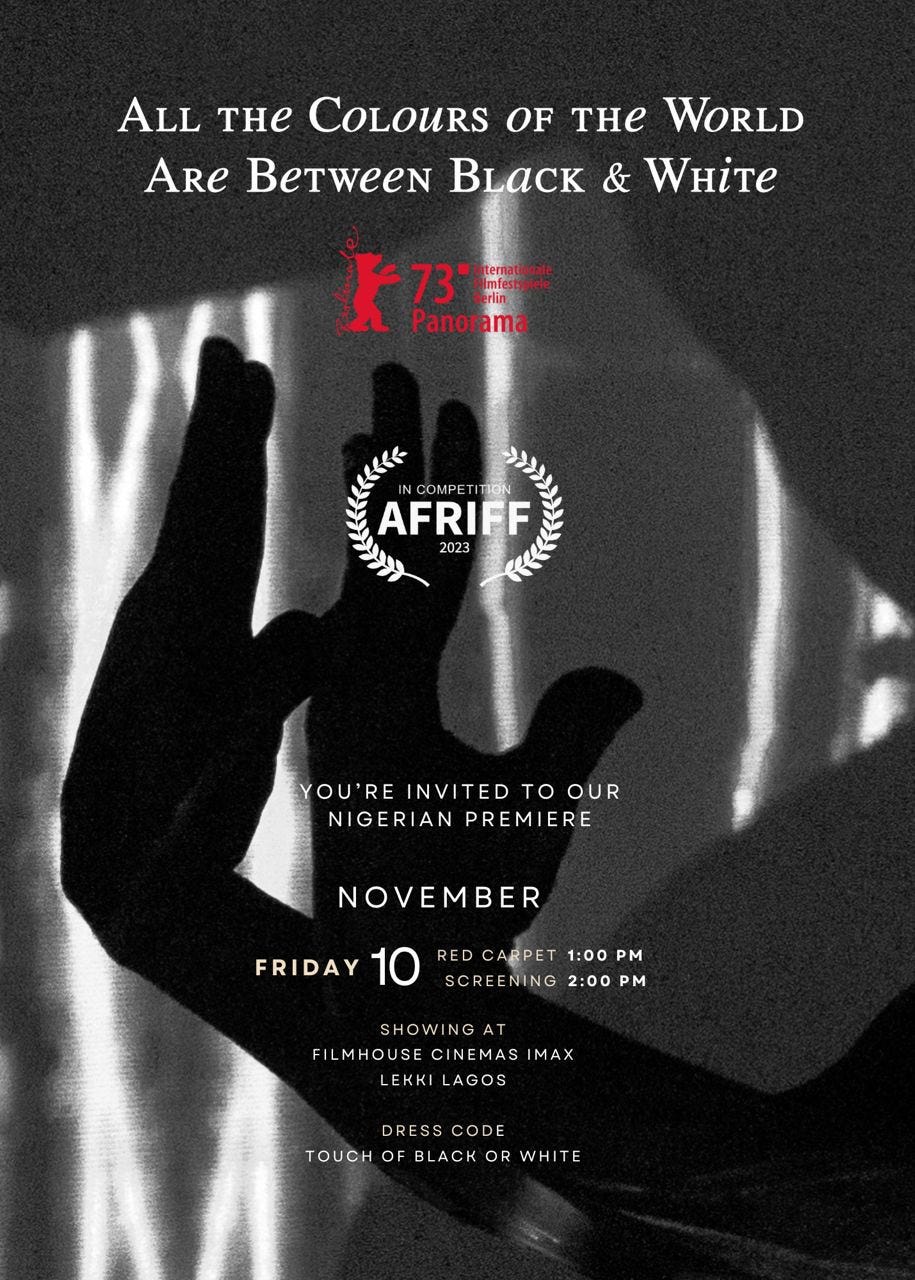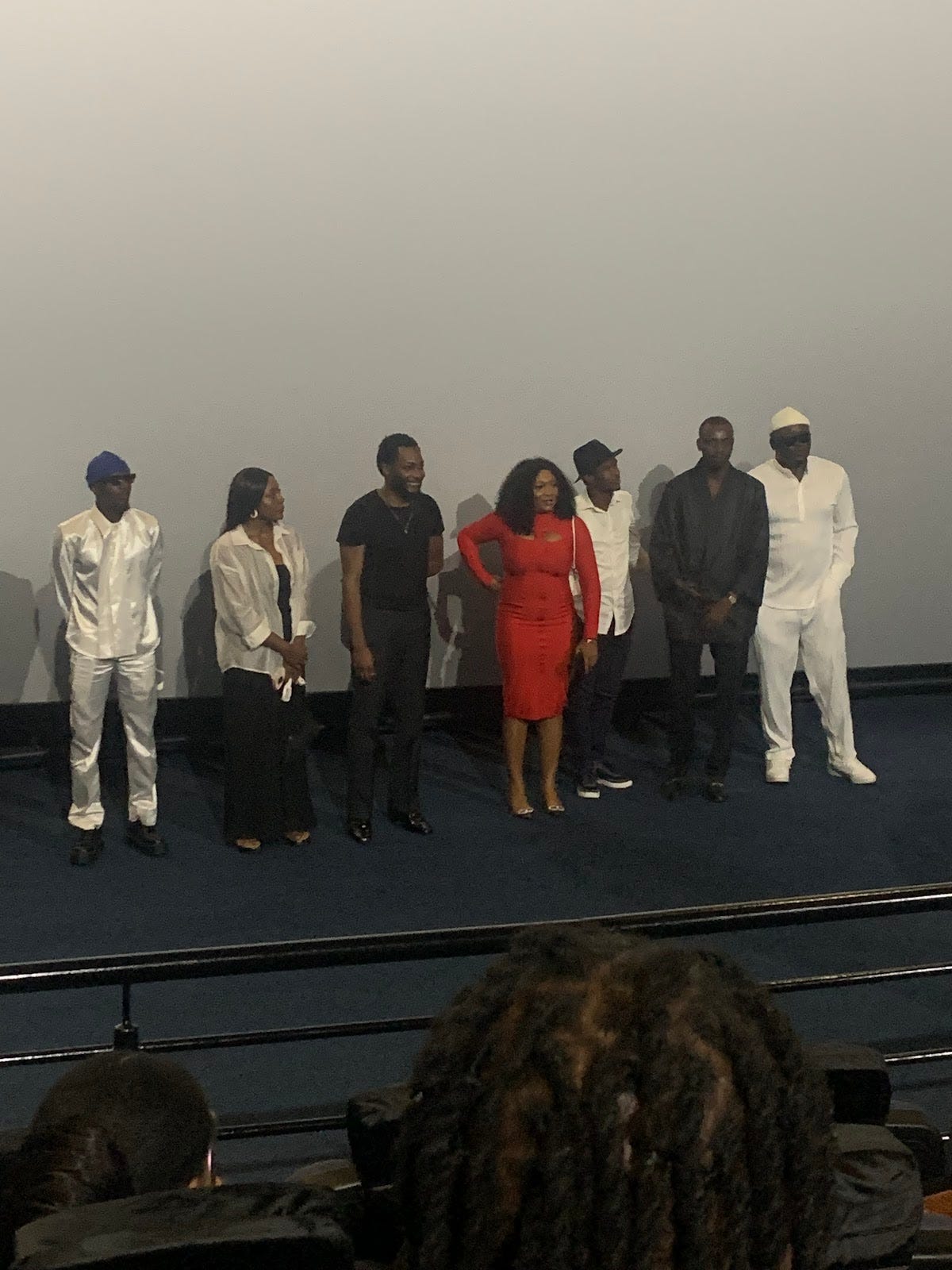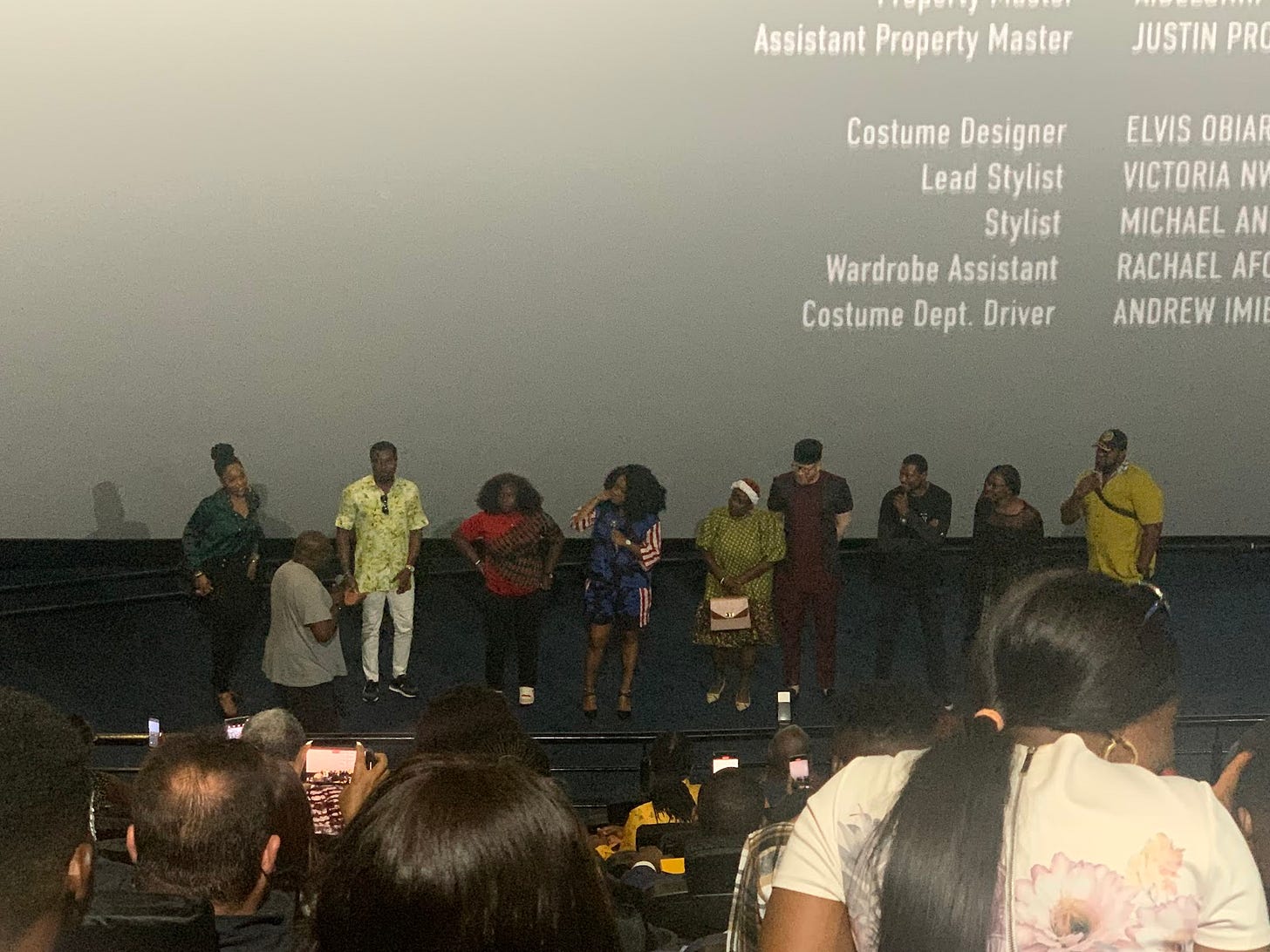AFRIFF CLOSING DISPATCH: ‘Breath of Life’ was the Perfect Closer to a week-long Celebration of Nollywood
The Africa International Film Festival (AFRIFF) closes with a trio of marvellous films!
It was the final day of the Africa International Film Festival (AFRIFF), which had been going on since Sunday in Lagos. For what had been an immersive storytelling experience, I wondered if the previous days could be topped and if the best really could be saved for the last.
My first film of the day was Babatunde Apalowo’s All the Colors of the World Are Between Black and White. This film tells the story of Bambino and Bawa, two men who meet in Lagos and develop romantic feelings for each other. They both have to navigate the complexities of their affection in a city where a relationship between two men is taboo and illegal.
This story is carefully told to reflect the reality of the average Nigerian man. The language, aesthetics, and gestures all add to the nativity of a city like Lagos. I love how the film was shot. The intentionality behind the color tone comes across in each frame. Another quality I found remarkable was the soundtrack. It was a blend of carefully crafted symphonies that underlined the different emotions felt by the characters in the film while helping to lighten the mood for the audience’s reception of each character's flaws, especially Bambino's.
The lead actors did a great job portraying their conflicted dilemma. When speaking about his thought process and his decision to take on his character, Tope Tedela (Bambino) admitted he had a moment of conflict himself. There was he as an actor who loved to tell stories; there was also the other side who was the son of clergy parents. However, the thought of who would bell the cat for this type of story was so critical to him that he decided to play his character.
After the film, I approached the director and expressed how much I loved watching the film. Then I asked him how he thinks All the Colors would impact the industry. His response corroborated my active thoughts during the screening. Many filmmakers would feel encouraged to tell more queer stories; according to him, some already are.
I also asked if he saw himself as a forerunner; he laughed and said no. Apalowo is no forerunner; he is just a man who loves to tell stories.
After watching All the Colors, I could leave the festival highly accomplished. It was enough for me. However, I would see two more films — What No One Knows and the festival’s official closing film, Breath of Life.
In What No One Knows, Tope Laguda and Adunni Ade shine as friends who are like sisters, in that they do everything together. However, a betrayal tears them apart. Adeoluwa Owu, the director, takes the viewer on a journey that explores the bond of sisterhood and how tough decisions can be so simple at the moment but highly regrettable when things take a turn. The friendship between Oriyomi and Ifelolu was sweet and admirable, but as the viewer, I was forced to pick a side when the tides changed.
Another theme referenced in the film is the pressure on women to have children of a particular gender. Beyond this, what shined through for me the most was the depiction of grief by Laguda’s character, Oriyomi. It was so moving that anyone who has ever experienced loss would be moved to tears all over again. The authentic portrayal made more sense to me when she spoke during the Q&A session about where she drew inspiration for that scene from. Referencing her late mother and her good friend, SoundSultan, she got herself in the zone. She had played his song on repeat before the shoot. She also admitted it was a challenging experience for her because she broke down after playing the scene.
Breath of Life, the upcoming Amazon Prime Video original, was a gift to me. This BB Sasore film was set in the city I grew up in and what looked like the streets I frequently strolled as a child. It was delightful to point out locations I am familiar with, like the semblance of the University of Ibadan’s staff quarters and the picturesque UI dam, to a friend sitting beside me. “You know that place too, right?” he’d ask at a few points during the screening.
Set in the 1950s, the story centers on a clergyman, Reverand Timi (Wale Ojo), who loses everything he loves, including his faith, but finds faith and hope again when he employs a houseboy, Elijah (Chimezie Imo), who changes everything.
The faith-based film is a moving picture with delicately explored themes. Sasore takes the audience on an experience of a father’s loss and the rekindling of his love and faith. I especially love how the film explores the subject of faith through the unconventional, non-religious lens I’ve been used to.
With an exceptionally talented ensemble starring Wale Ojo, Bimbo Manuel, Sam Dede, Tina Mba, Chimezie Imo, and Genoveva Umeh, the film is packed with brilliant performances. Another remarkable quality of this film is the production. Although, at some point, objects not belonging in the 1950s become too visible to ignore, one could overlook them and concentrate on the story itself.
Breath of Life, the beauty and magic of it, was the perfect seal on an unforgettable week-long adventure at AFRIFF. I hope you get to experience it soon, too.






